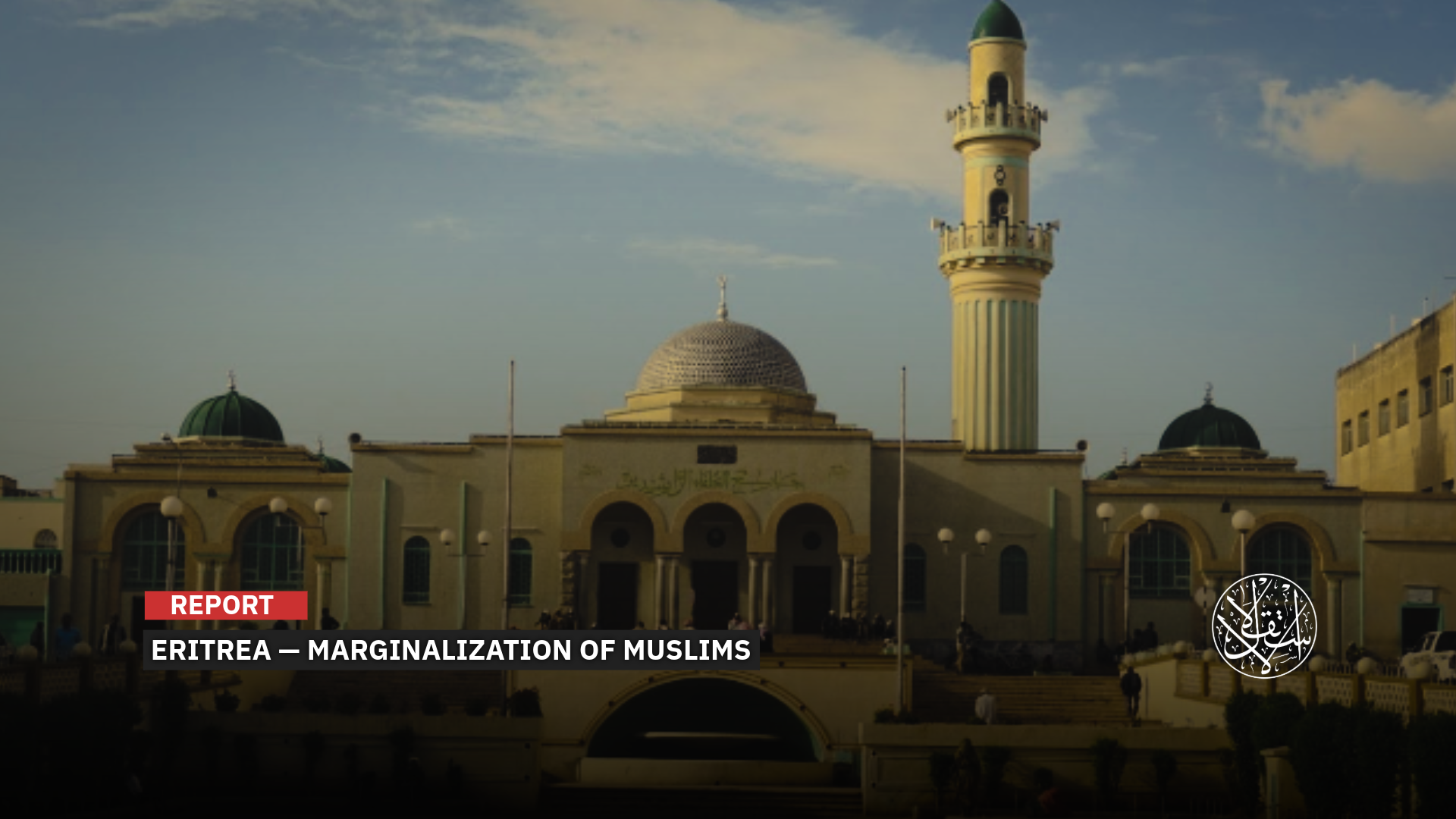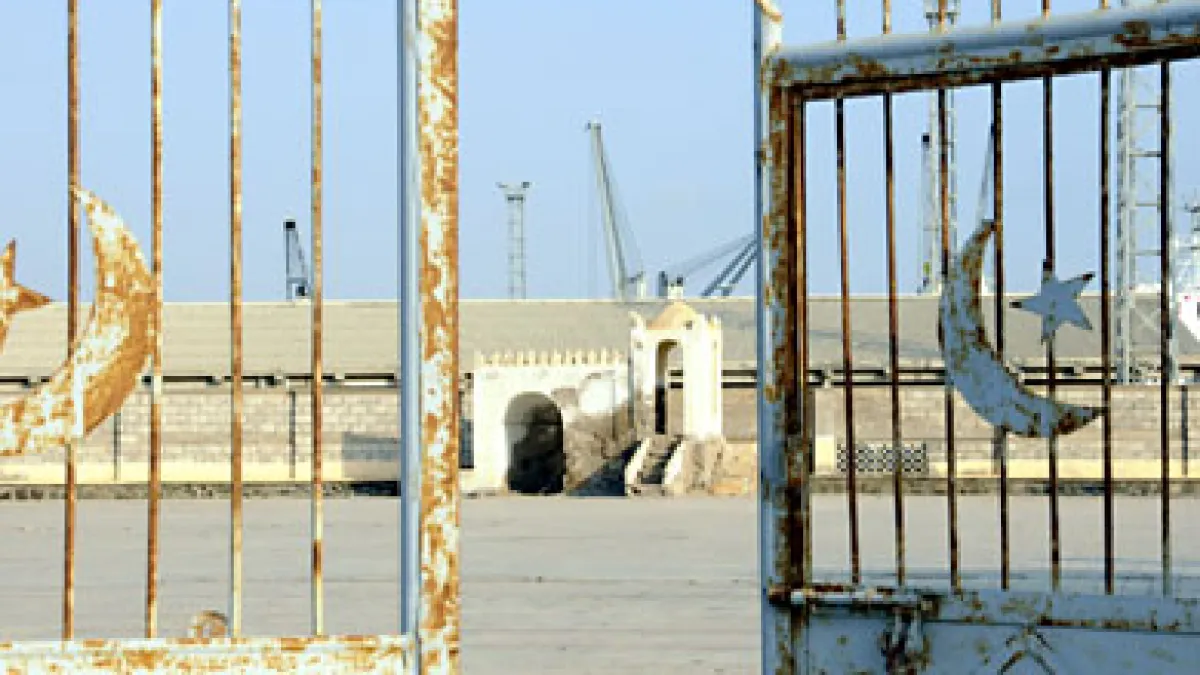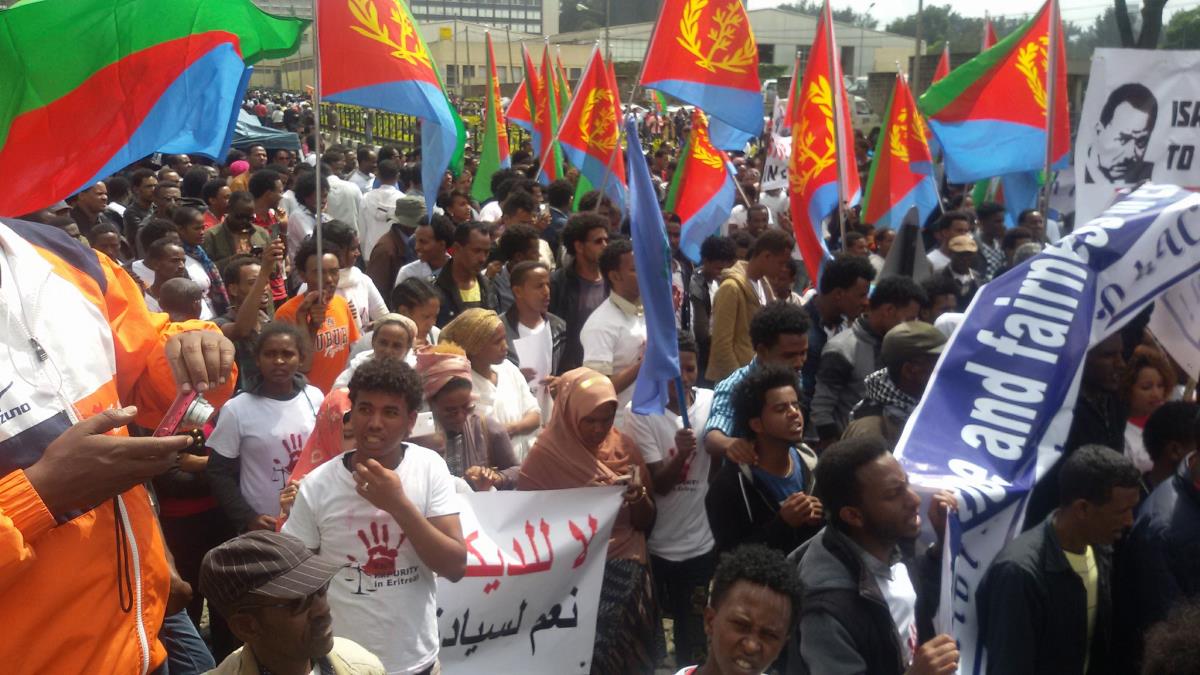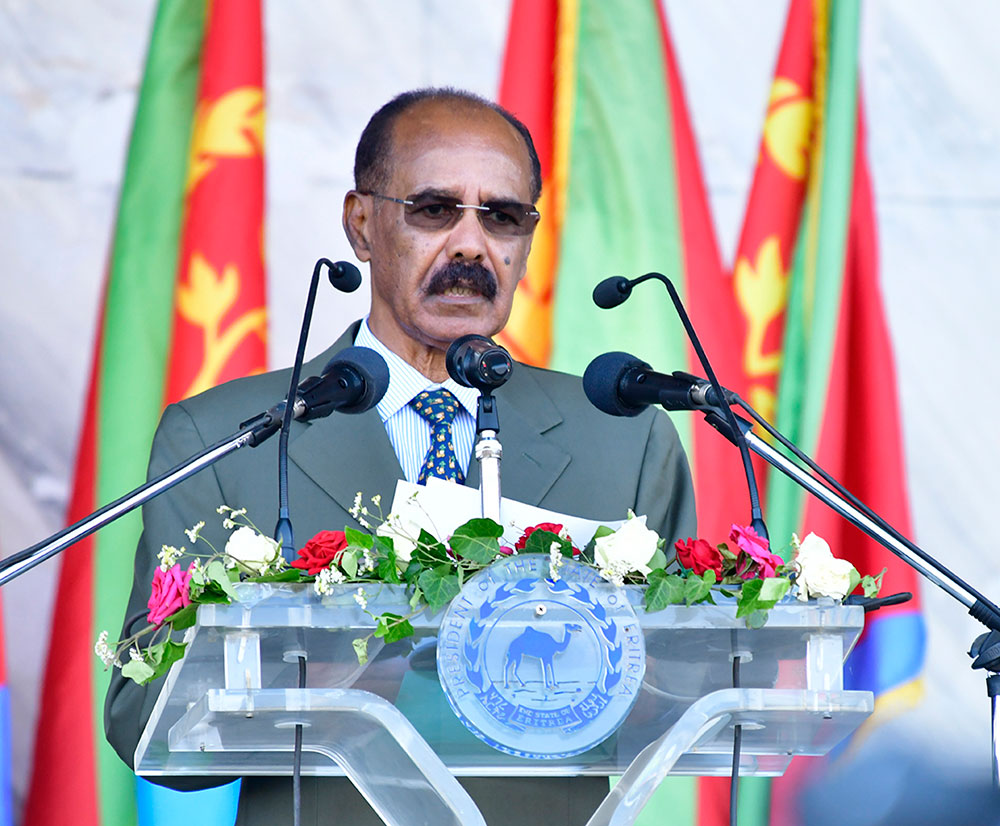Crackdown on Muslims in Eritrea: How Afwerki’s Regime Seized the Last Quranic School in Ghinda

Muslims in Eritrea are facing heightened marginalization both inside the country and abroad.
In the heart of Ghinda, in Eritrea’s Northern Red Sea region, Muslim children used to walk early in the morning carrying their wooden tablets to the Quranic school.
But on August 16, 2025, a heavy silence fell after security forces raided the building, arrested its well-known sheikh, Adam Shaban, and closed its doors to hand it over to the Ministry of Education.
This scene was just the latest episode in a decades-long series of attacks by President Isaias Afwerki’s regime on Islamic institutions, part of a systematic effort to eliminate any religious or educational space independent of the state.
The Recent Crackdown
On the surface, the story was about the closure of an old religious center, but at its core it revealed an authoritarian policy aimed at reshaping society since Eritrea’s independence in 1993.
From Ghinda to Keren and Asmara, the pattern repeats: historic Islamic schools closed, mosques demolished, and hundreds of scholars and preachers arrested or forcibly disappeared in a society where Muslims make up half the population.
According to the Arab Organization for Human Rights in the UK, the center raided by Eritrean security forces was founded in 1969 on a charitable endowment by citizen Sayid Muhammad Dawood.
It was not merely a Quranic school but a cornerstone for preserving the local Muslim community’s religious and cultural identity for decades.
Generations of scholars and preachers graduated from it, and some children walked an hour and a half to reach it.
The organization noted that this event is not an exception but part of a continuous record of violations. Since the 1990s, measures have included closing historic institutes such as the Islamic Religion Institute in Keren (1961), the Anseba Islamic Institute (1963), the Ashab al-Yameen Institute (1969), and the Islamic Institute in Ghinda itself.
Also closed were the al-Diaa Islamic School in Asmara (1967), and later the al-Diaa and al-Bukhari Center between 2000 and 2020. Four mosques in Mendefera were demolished in 1995 and 1996.
These are not isolated administrative decisions but part of an ongoing plan to dismantle any independent Islamic institution outside the regime’s control.

Crackdown on Scholars and Preachers
Beyond closing institutions, the authorities have launched widespread arrest campaigns targeting scholars and preachers.
More than 220 religious and educational figures have fallen victim to arbitrary detention and enforced disappearance. Some died under mysterious circumstances in prison, while the authorities refuse to disclose even their names or the circumstances of their deaths.
These practices reveal a regime that fears any independent voice, even within the framework of teaching the Quran to children.
The impact extends beyond institutions to Eritrea’s Muslim community as a whole. Its educational structure has been weakened, management of religious endowments restricted, and mosque construction subjected to strict controls. With these institutions absent, new generations lose connections to their religious and cultural heritage.
Many observers see this as resulting in a community at risk of losing its spiritual memory. While the regime boasts of maintaining “national unity,” it enforces stark discrimination against half the population.
The Arab Organization for Human Rights has called for the immediate and unconditional release of Sheikh Adam Shaban and other detainees, urging UN special rapporteurs on freedom of religion to intervene against arbitrary arrests.
It emphasized that the continuation of these policies makes it essential to send a fact-finding mission on religious freedom and education in the country.
Yet these calls, important as they are, confront a wall of silence in Eritrea, where the state tightly controls the media and civil society.

Muslims and Afwerki
Isaias Afwerki, the man who led Eritrea’s struggle against Ethiopia until the country gained independence in 1991, became a president holding absolute power just three years after the new state was declared.
Since his election in 1993 by the National Assembly and his subsequent transformation of the Eritrean People’s Liberation Front into the ruling party under the name People’s Front for Democracy and Justice, Eritreans have known neither political pluralism nor peaceful transfer of power.
Once a symbol of liberation in the early 1990s, Afwerki later became synonymous with repression and authoritarianism, with his regime accused of widespread human rights abuses, including arbitrary arrests, enforced disappearances, and torture.
United Nations reports and international organizations have consistently ranked Eritrea among the worst in the world for human rights and press freedom.
What most distinguishes Afwerki’s rule, however, is his policies toward Eritrea’s Muslim population, which historically formed a majority.
This community, which made up roughly 80% of the population decades ago, has gradually faced a systematic effort to diminish its presence.
Concurrently, state media have promoted a narrative claiming that Muslims and Christians now make up equal shares of the population, despite the absence of any official census for more than 25 years.
It is clear that Afwerki’s relationship with Eritrea’s Muslims is rooted in exclusion and marginalization.
The regime seeks to strip the community of its institutions and religious identity, reshaping the demographic and political landscape to ensure its absolute control, even at the cost of erasing the history and memory of the country’s majority.

A Warning Message
In a broadcast on Salam TV, an Eritrean-focused channel, on July 28, 2025, Sheikh Burhan Said, secretary-general of the Eritrean Ulama’a League, sharply criticized the Afwerki regime, calling it a state biased toward Christians at the expense of the Muslim majority.
He said that power in Eritrea is now dominated by Christians to an extent approaching 98%, while Muslims have been almost completely marginalized, losing their standing and role in public life.
Sheikh Burhan noted that this marginalization did not happen by chance but is the result of a long-term policy targeting Muslims and their identity directly.
Meanwhile, the regime has allowed the construction of new churches across cities and even granted them investments on Muslim lands.
The Eritrean Church has honored Afwerki for his “services” over the years, even as Muslims are denied the simplest rights to honor their scholars or manage their religious endowments.
The sheikh questioned why the authorities prevent millions of Muslim refugees from returning home while allowing the church to expand freely.
He added that Eritreans once hoped Afwerki’s regime would stay secular and neutral toward all faiths, but in practice it has favored Christians while systematically sidelining Muslims.
Sheikh Burhan warned that these biased policies threaten not only Muslims but the broader national fabric, raising the risk of major sectarian strife, and he held Afwerki responsible for the danger of tearing the country apart.
In closing, he urged Eritrean Christian leaders to advise the regime before it is too late, warning that the consequences of continuing these destructive policies will affect everyone.
A Dual Strategy
On Afwerki’s policies, Eritrean Islamic studies professor Dr. Affa Mohammed Osman said the president’s approach cannot be understood apart from Eritrea’s sensitive geopolitical position in the Horn of Africa.
“Its strategic location on the Red Sea has made it a regional prize amid intense competition from powers like the UAE, Saudi Arabia, Iran, and Turkiye,” he told Al-Estiklal.
“The regime has leveraged this position, using the banner of counterterrorism as a bargaining chip with Washington and the European Union, presenting itself as a strict secular state curbing what it calls political Islam.”
“This has allowed it to escape accountability despite a dark record of human rights violations, especially systematic repression of Muslims,” Osman added.
“The regime’s religious policies are not isolated measures but part of a dual governance strategy: domestically, crushing any independent space that could allow society to build alternative institutions; internationally, projecting the image of a strong secular state fighting extremism to secure legitimacy abroad.
The result is that Muslims in Eritrea face double marginalization, repressed at home and ignored abroad, according to the professor.
“Eritrea has nine ethnic groups, six of which are entirely Muslim, while the majority in the other three are also Muslim, except for one group with a Christian majority.”
This means Muslims represent the core of the country’s historical identity, yet the regime seeks to sideline them and weaken their institutions.
Osman warned that these policies are part of a project to neutralize religion and bend it to serve power rather than society, urging, “Christians and Muslims today must unite and resist the regime’s attempts to perpetuate its rule and divide the people.”











